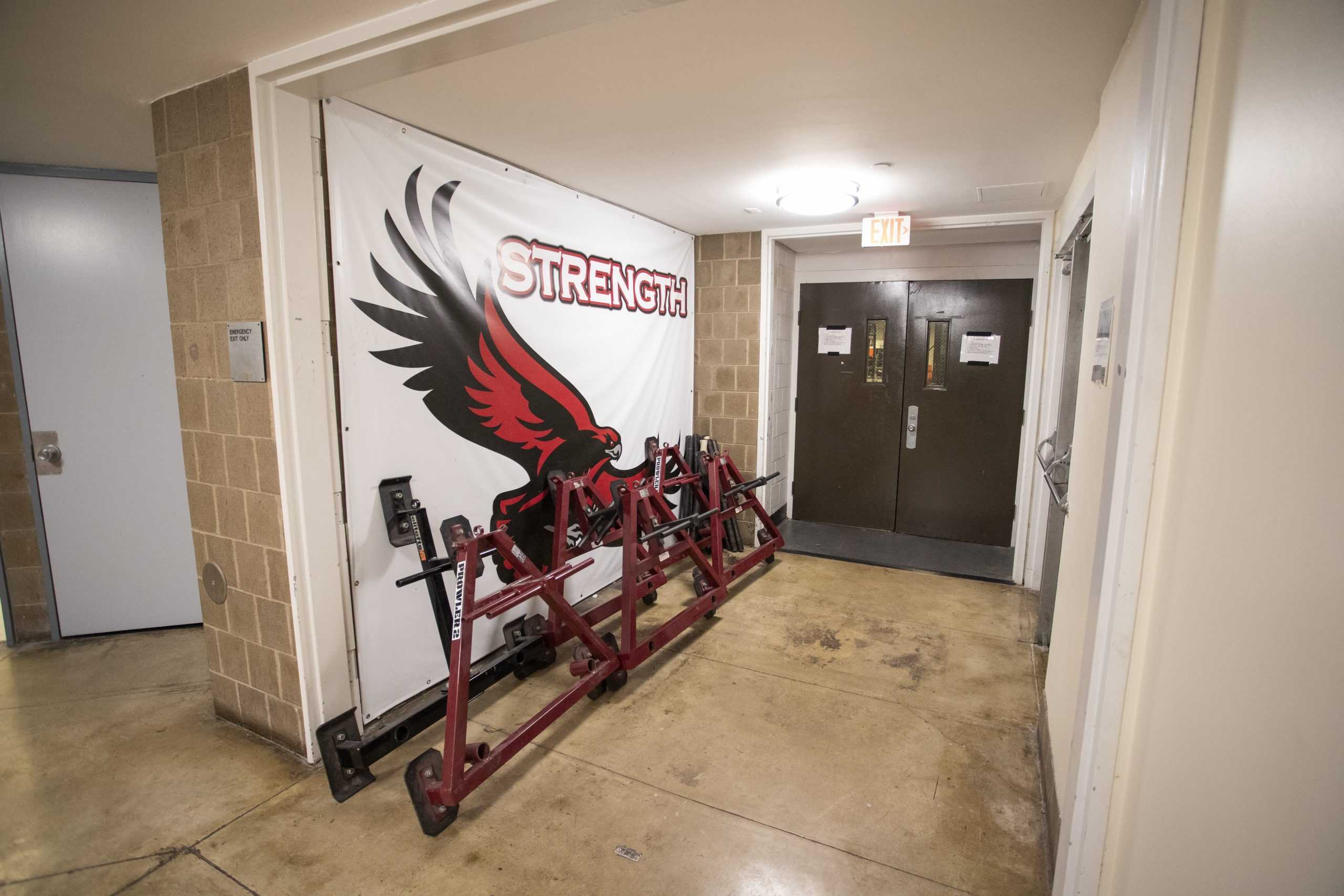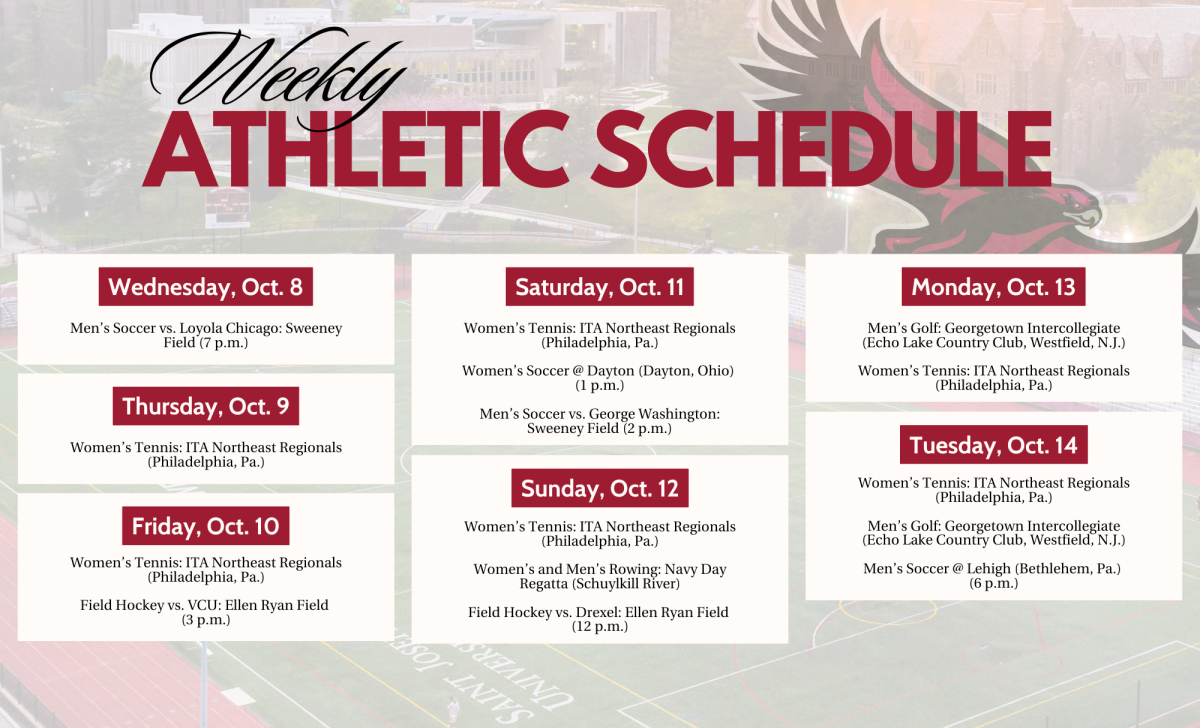Benjamin Steenrod has been named the new trainer for the St. Joe’s men’s and women- en’s rugby teams.
Steenrod, who is the head strength and conditioning coach for women’s basketball, field hockey, men’s soccer, baseball and women’s lacrosse, will also start working with the rugby teams this spring.
“I’ll have those teams as well, but the time that they are in [Michael J. Hagan’85 Arena] is just dedicated to them, so the weight room is closed to anyone else,” Steen- rod said. “It’s a normal team lift. That team is in, and that’s all our focus.”
The men and women’s rugby team started the fall 2019 semester with a trainer who left after the first week due to a family emergency.
One of the benefits of a team trainer is access to the Hagan Sports Complex Strength and Condition room, Angie Nagle, assistant director of Campus Recreation, wrote in an email to The Hawk.
“This has been the case for years,” Nagle said. “Requiring a strength and conditioning coach is in place to ensure the safety of all participants as well as to preserve the equipment in the room.”
Without a trainer, the women’s team lost access to the Hagan weight room last semester. The men’s team started the spring semester without a trainer until Steenrood was named and was in jeopardy of losing access as well.
“This issue has been resolved, and both the men’s and women’s rugby teams will continue their work with a SJU strength and conditioning coach this spring,” Nagle said.
Both teams pay an annual fee to be an active member on the team, part of which goes toward paying a strength and conditioning coach, according to junior hooker Fallon Oates, who said women’s team members were upset their dues were not being used for a strength and conditioning coach last semester.
“This is money that we put into this opportunity,” Oates said. “It’s not like it’s provided to us from the school for free. So to have that opportunity taken away from us, it’s kind of a slap in the face.”
A strength and conditioning coach for a sport like rugby is essential, according to junior Mike Paulosky, a member of the men’s rugby team. Strength training helps with rucks, tackles and running, he said.
“Rugby is a contact sport, so being strong and being physically bigger is very important,” Paulosky said. “It’s good that at least twice a week, we are in the weight room, so we have that physical condition for the whole team.”
Steenrod said the main muscle focus- es for rugby are upper back, trapezius and neck to help players avoid concussions and head injuries.
Corey Phalen, women’s rugby coach, said team injuries increased last semester without a strength and conditioning coach.
“When we didn’t have one for a semester, we had more injuries,” Phalen said. “They had a lack of confidence in themselves, and we had to pay more attention to conditioning in practice as opposed to multiple events.”
Oates said she noticed the difference, too.
“Personally, I felt that I got hurt more this past season then I typically would have just from being weak, not having the stamina for what I needed,” Oates said. “It just caused lazy tackles on the field.”
Junior lock Erin Hicks, president of the women’s rugby team, said all positions on the field, including forwards who make the tackles and backs who run the ball, felt the difference in their physical condition during the game.
“You can really feel it on the field when you can’t make that tackle, and it’s just so demoralizing,” said Hicks. “Last year, when we did have the coach, I noticed that our tackles were so much stronger than they were this year. It was harder to do our jobs as forwards without it.”
Paulosky said rugby players spend multiple hours at practice and lift to be physically fit to perform well on the field. A training coach is essential.
“The nature of the sport is contact,” Paulosky said. “It needs that sort of backing from a training perspective.”















































